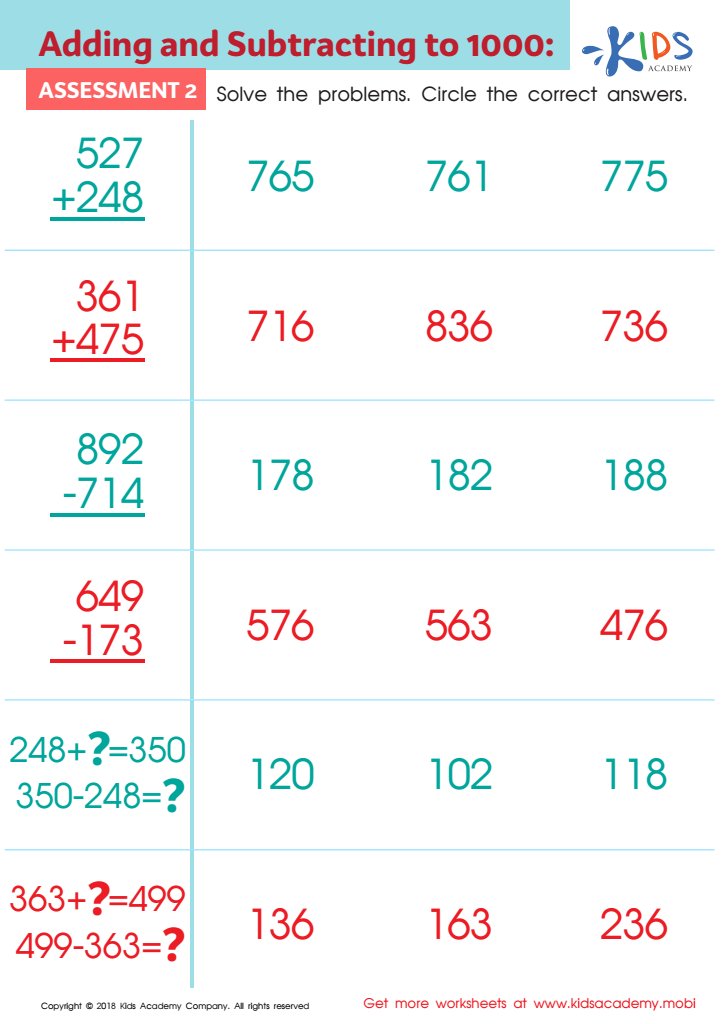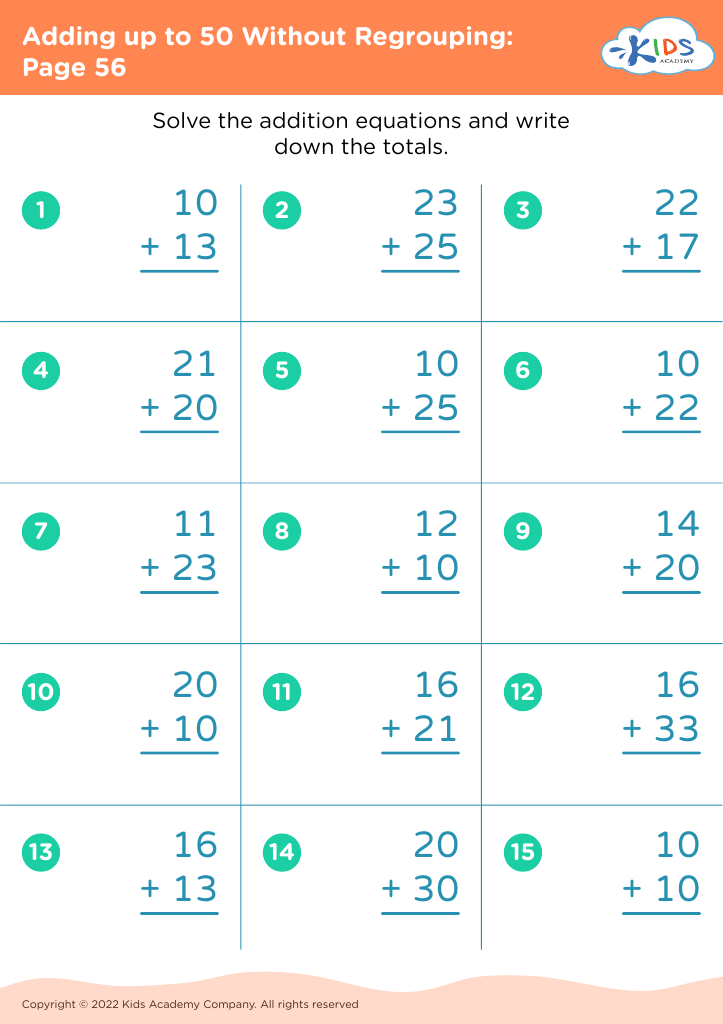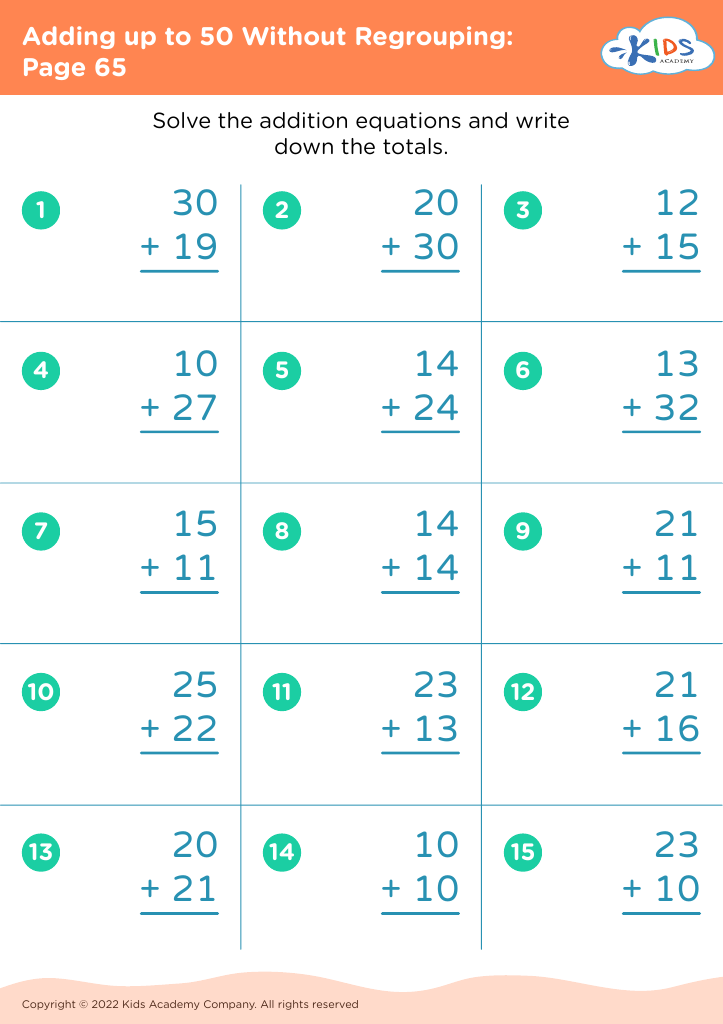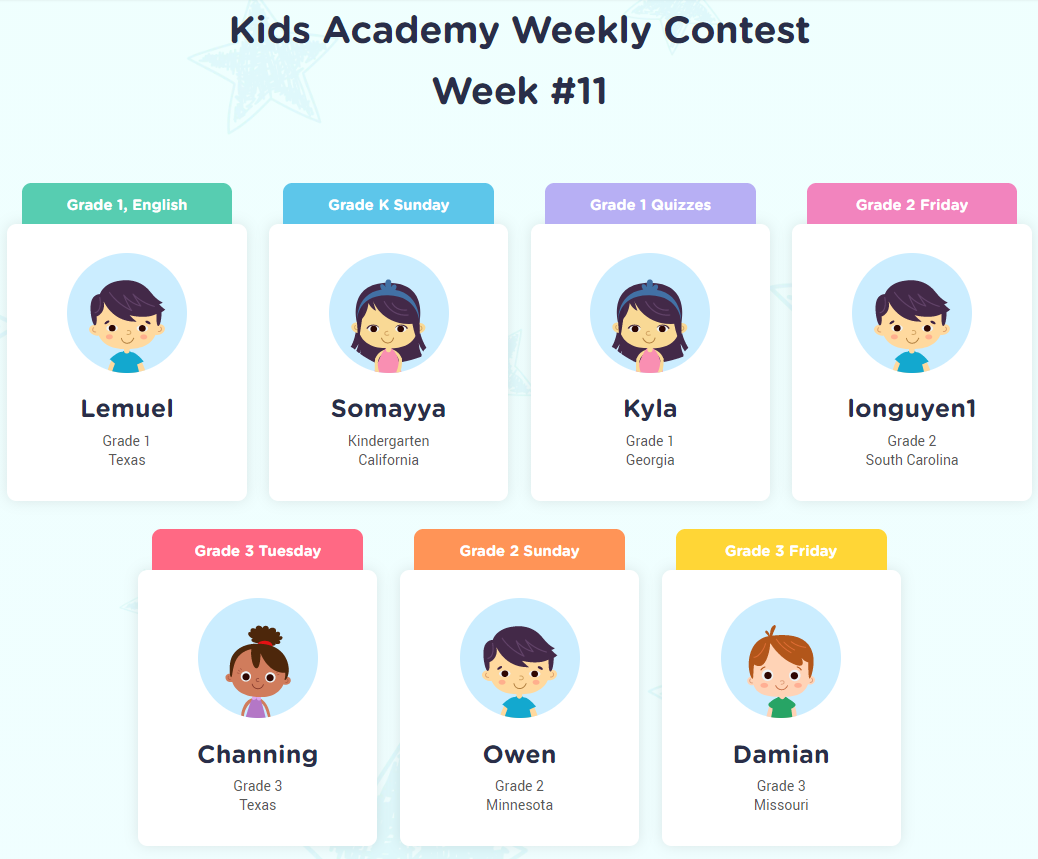Compare fractions Math Worksheets for Ages 3-8
6 filtered results
-
From - To
Discover our engaging Compare Fractions Math Worksheets designed for children aged 3 to 8. These colorful, age-appropriate activities help young learners grasp the concept of fractions while enhancing their mathematical skills. With fun visuals and creative exercises, kids can explore the relationship between different fractions, fostering critical thinking and problem-solving abilities. Our worksheets promote hands-on learning, making complex ideas easy to understand. Perfect for homeschooling, classrooms, or extra practice, these resources cater to diverse learning styles. Dive into the world of fractions and give your child the confidence they need to succeed in math! Start comparing fractions with us today!


Adding and Subtracting to 1 Worksheet: Assessment 2
Understanding how to compare fractions is an essential math skill for children aged 3-8, as it lays the foundation for more complex mathematical concepts later on. At this developmental stage, children are naturally curious and eager to explore relationships between numbers and quantities. Comparing fractions helps foster critical thinking, improving their problem-solving abilities and encouraging mathematical reasoning. When parents or teachers engage children in this learning process, they promote foundational skills essential for future success in mathematics.
Furthermore, comparing fractions enhances a child’s understanding of parts and wholes, which are integral to their everyday life, from sharing snacks to measuring ingredients in cooking. As they visualize and manipulate fractions using real-life examples, they develop a deeper comprehension of dividing things into parts and using those parts meaningfully.
Additionally, mastering this concept aids in building confidence in math, reducing anxiety as they face more advanced topics. Addressing fraction comparisons during these early years also supports the development of a growth mindset, empowering children to embrace challenges and persevere through difficulties. Ultimately, educating young learners about comparing fractions not only equips them with essential math skills but also nurtures an appreciation for the subject that can last a lifetime.

 Assign to My Students
Assign to My Students























